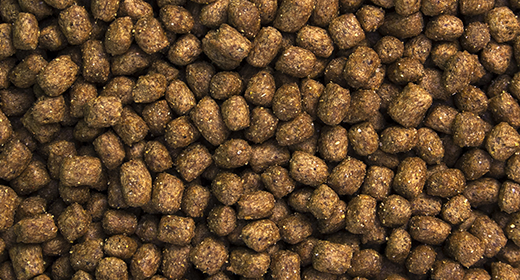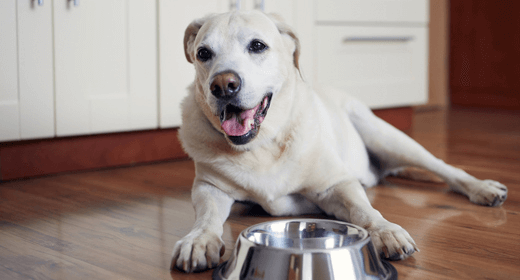

Taking care of your new puppy can be overwhelming, but with these tips and lots of love, you’ll be a great puppy parent in no time.
Just like a baby, a puppy's body is fragile. Avoid picking up your puppy unless absolutely necessary. If you must, be careful and use these steps:
Step 1: Place one hand under your puppy's rump, and place your other hand under his chest.
Step 2: Lift with both arms. With a small adult dog, use the puppy technique. For larger dogs, wrap both arms around his legs, draw him to your chest, and lift.
Before you bring your puppy home, be sure you have the following supplies:
Keeping your puppy safe in your yard requires good fencing. There are several options to choose from, and the one you should pick will depend on your puppy's personality, your property, and your budget. Here are some of the options you should consider:
The ideal time to bring home a new puppy is when the house is quiet. Discourage friends from stopping by and don't allow overnight guests. First, establish a daily routine and follow these steps:
Step 1: Before bringing him in the house, take him to the designated potty area in your yard and spend a few minutes there. If he goes, praise him. Be sure to take him to this spot each time he potties.
Step 2: Take him to the room with his crate. This restricted area will serve as his new 'den' for several days. Put bedding and chew toys in the crate, leave the door open, and line the area outside of the crate with newspaper in case of an accident. Let him investigate the crate and the room. If he chews or urinates on his bedding, permanently remove it from the crate.
Step 3: Observe and interact with your puppy while he's getting used to his new den. This will help forge a sense of 'pack' and establish you as the pack leader.
Don't treat a puppy as young as 6 to 12 weeks like an adult dog. Treat him the same way you would an infant, with patience, constant supervision, and a gentle touch. The way you interact with your puppy at this age is critical to his socialization. Use these tips:
Ideally, your kids should help you choose your puppy. When you bring him home, don't let them play with him constantly. Puppies need a lot of rest, just like a growing child. Limit puppy-children play sessions to 15- to 30-minute periods, two to three times a day.
Meeting Resident Pets


One of the most important things you can do is to feed your senior dog a diet formulated for his age featuring nutritional breakthroughs developed by the geriatric research team at The IAMS™ Company. As the years take their toll, a complete, well-balanced diet can help older dogs maintain health and ideal body weight, maximize their ability to stay healthy, and promote and maintain muscle tone and digestive health.
To call a dog 'old,' one mustn't consider chronological age, but rather physiological condition. Aging begins when the body's systems start to slow down when cells deteriorate faster than the body can repair them. Though the process is different for every animal (large and giant breeds tend to age faster than smaller breeds), dogs are generally considered seniors beginning at around 7 years (5 years for large and giant breeds). If you feed your dog a diet designed to address the nutritional needs of his age, you can best maintain your dog's overall health and well-being. As your dog ages, detecting and addressing signs of wear and tear or disease early might help your dog adjust more readily to his condition.
How your dog ages has much to do with genetics and environment, but nutrition plays an equally important role. The quality of the food and its ability to maintain and nourish your dog's cells can slow or delay the effects of aging and help promote a long, healthy life. As your dog ages and his systems become less efficient, he relies increasingly on the food you provide to make up for his body's shortfalls. According to Michael Hayek, PhD, a research nutritionist at The IAMS Company who specializes in geriatric nutrition, 'Aging dogs need the same nutrients as younger dogs; however, the quantity or the way the nutrients are provided may change.'
Dr. Hayek advises not waiting until you see signs of aging in your dog to consider the proper diet. Feeding a high-quality, premium diet throughout your dog's life is the best way to help him age gracefully. When your dog reaches the golden years, choose IAMS for nutrition suited to this stage of life. 'Good nutrition starts early,' says Dr. Hayek. 'It should be viewed as proactive health care because it may be a deterrent to aging later on.'
If your dog already exhibits signs of aging, look for a high-quality, balanced maintenance food that caters to his changing metabolism. When you're shopping for a formula that's right for your older dog, look for and compare these important features:
High-quality animal protein. Just like us, as dogs grow older, they naturally tend to lose lean body mass (muscle). High-quality protein becomes increasingly significant by providing the essential amino acids your dog needs to minimize the loss of lean body tissue. By nature, dogs are carnivores, and they do best on high-quality, animal-based proteins from sources such as chicken or lamb. Some people believe that aging dogs should be fed less protein to prevent or minimize kidney disease. However, the evidence is just not there. Reduced protein has a significant effect only after a certain level of renal dysfunction occurs. Signs of renal dysfunction include an increase in water consumption and increased urination. If you're concerned about your dog's renal health, your veterinarian can run tests to assess the level of renal function and recommend appropriate treatments if they are needed.
'If your dog is generally in a state of good health,' explains Dr. Hayek, 'protein should not be restricted. Rather, it should be available for building those all-important muscle reserves.' Some studies have shown that a diet of high-quality protein might actually help improve kidney function, and no research has indicated that low-protein diets slow the progression of renal damage in dogs.
Lower fat. Less-active, older dogs need fewer calories. Look for a food that's low in fat compared to our other adult formulas, but don't eliminate fat completely or feed a food that doesn't have enough fat. Pick a formula with at least 10% fat. Older dogs still need essential fatty acids. The inclusion of omega-3 fatty acids helps a senior dog maintain a proper fatty-acid balance as the body's fatty-acid synthesis naturally decreases.
Moderately fermentable fiber. The goal of fiber is to help maintain optimal intestinal health. 'You want to aim for consistent stools,' explains Dr. Hayek. The goal is to promote digestibility and the ability to process food and absorb nutrients. At the same time, fiber levels should promote and maintain a healthy intestinal tract, which often can be problematic for older dogs. A fiber level of no more than 5% is appropriate for seniors to maintain an optimal intestinal environment for a healthy gut, which helps result in excellent nutrient absorption and small, firm stools. IAMS includes dried beet pulp, a patented fiber source, in all of its foods to make elimination easier and regular. According to Dr. Hayek, if you've been feeding your dog properly all along, fiber requirements shouldn't change.
Fructooligosaccharides (FOS) are a unique fiber source. FOS is a moderately fermentable fiber which can help maintain a healthy intestinal environment.
Antioxidants. These help maintain balance within the body by ridding it of harmful compounds called free radicals, which increase as a dog ages. Antioxidants fend off free radicals and help protect cell membranes and DNA. To maintain your older dog's immune-system response, feed a formula with important antioxidant nutrients such as vitamin E and beta-carotene.
Vitamins and minerals. A high-quality, nutritionally balanced dog food should include all of the essential nutrients in the proper proportions. Some say that vitamin and mineral supplements are necessary as a dog's systems age. The fact is that, unless your veterinarian specifically identifies a deficiency, vitamin and mineral supplements are unnecessary and, in some cases, might do more harm than good by creating an unhealthy imbalance.
Balanced feeding is vital as a dog ages, but it's just as essential throughout his life. The longer and more consistently you feed him a healthy diet for his life stage, such as IAMS ProActive Health™ Senior Plus, the greater his chances of living a long, healthy life. As your dog reaches the senior years for his breed or size, remember these tips:
Finally, Dr. Hayek points out that there's still much to learn about canine geriatric nutrition. For now, realize that every animal ages at a different rate and in different ways. Monitor your dog and especially watch for changes after 7 years of age (5 years for large and giant breeds). With the help of your veterinarian and responsible pet food manufacturers, your pet can live to a comfortable, healthy old age.